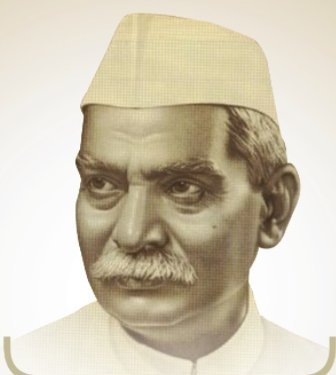Remembering First President of independent India Shri Rajendra Prasad on his death anniversary, Kreately Media brings some of the lesser known facts about him.


I would like to share an anecdote about Dr. Rajendra Prasad which I have heard many times during my childhood from my teachers.
Dr. Prasad joined the Presidency College,Kolkata in 1902, initially as a science student. He passed Intermediate level classes then called as F. A. under the University of Calcutta in March 1904 and further graduated with First Division from there itself in March 1905.
Impressed by his intellect, an examiner once commented on his answer sheet “examinee is better than examiner”.
There’s an wikipedia excerpt of the incident and now I would like to share the elaborated version I heard. In the said exam there were 10 questions asked and students were instructed to answer any 5. Dr Rajendra Prasad answered all the questions and wrote “Check any 5”. Initially the Evaluator thought of him to be an arrogant student but after going through his answers he commented “examinee is better than examiner” which was probably first & last time used for any student.
So, There existed a real life Ranchor Das Chanchad long before the 3 Idiots released!
His elder sister Bhagwati Devi had passed away in the night of 25 January, 1960. She doted on her dearly-loved younger brother, to whose house she had returned within two years of her marriage, a widow at nineteen. It must have taken Rajendra Babu all his will power to have taken the Republic Day salute as usual, on the following day, seemingly unruffled. It was only on return from the parade that he set about the task of cremation.
Within months of his retirement, early in September 1962, passed away his wife Rajbanshi Devi, whose contribution to making him what he was, though indirect, was considerable. Frail and an invalid for a long time, she was the very embodiment of the spirit of renunciation, selflessness, self-effacement and devotion. She had asked for little and though she had been only partly a companion to him, she had silently encouraged him and never stood in the way. Her husband’s will was her will, his pleasure hers. Not many words were exchanged between the two – they would sit quietly together for hours – and yet their silent communion filled the atmosphere with distinct aura.
No wonder, his last days were days of agony. The Chinese aggression had shaken him completely. He had apprehended the danger. He had thought of the dreaded possibility. But “perhaps those who thought otherwise knew better”. This consolation was shaken away by the naked aggression. His will to live was weakening. In a letter to one devoted to him, he wrote a month before his death: “I have a feeling that the end is near, end of the energy to do, end of my very existence”. And so, when the end came suddenly on 28 February, 1963, he was not unprepared. He died, after a few hours’ illness.
DISCLAIMER: The author is solely responsible for the views expressed in this article. The author carries the responsibility for citing and/or licensing of images utilized within the text.
